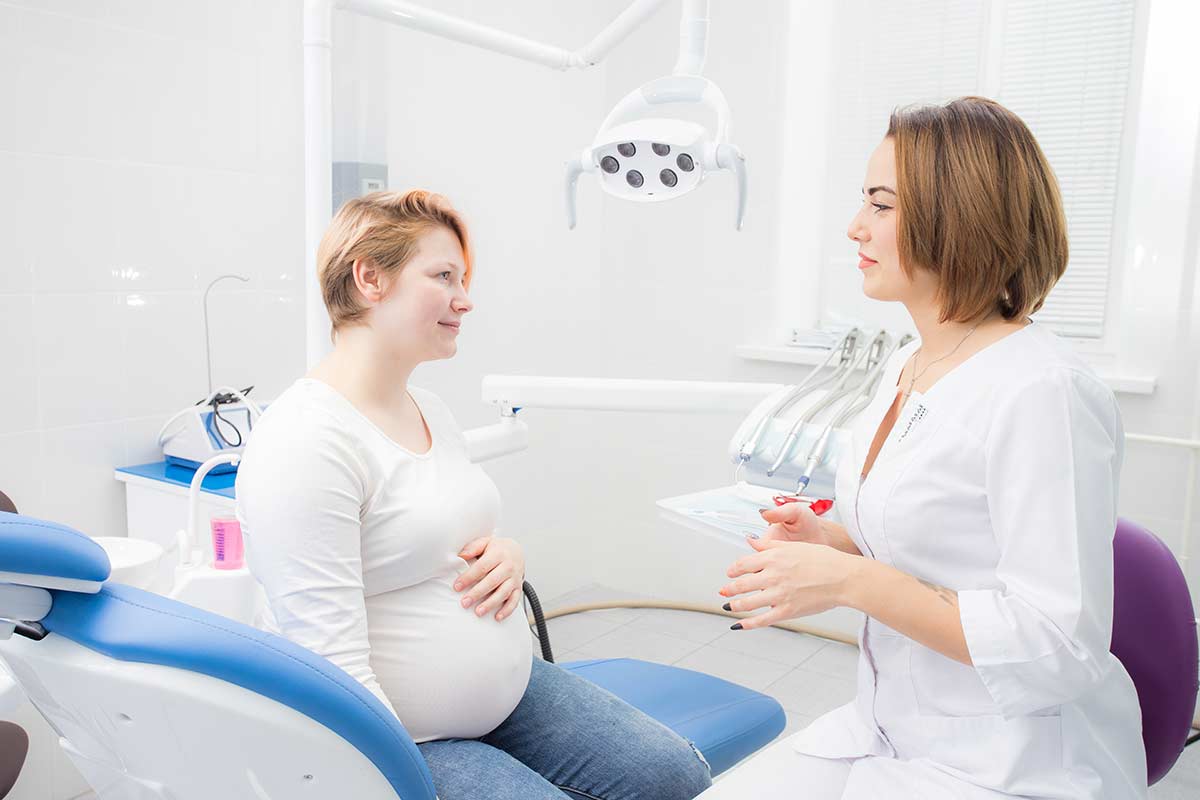A pregnant woman s dental health can affect her unborn child

A Pregnant Woman’s Dental Health Can Affect Her Unborn Child

Pregnancy is a beautiful journey that brings about several changes in a woman’s body. While many soon-to-be mothers focus on their overall health, it is crucial not to overlook dental health during this time. Research has shown that a pregnant woman’s dental health can significantly impact her unborn child’s well-being. It is important to understand how oral care plays a vital role in the overall health of both mother and baby.
During pregnancy, hormonal changes can lead to an increased risk of dental problems. These changes can cause swollen and bleeding gums, a condition known as pregnancy gingivitis. If left untreated, gingivitis can progress to periodontitis, a severe gum infection that may result in tooth loss. This heightened risk of dental problems underscores the importance of maintaining good oral hygiene practices throughout pregnancy. Regular brushing, flossing, and visiting the dentist for check-ups are crucial steps in preventing any potential issues.
Poor dental health during pregnancy can have far-reaching consequences for both the mother and her unborn child. The bacteria responsible for gum infections can enter the bloodstream through the inflamed gums. Once in the bloodstream, these bacteria can travel to the placenta, potentially triggering an inflammatory response. This inflammation has been linked to a higher risk of complications such as preterm birth, low birth weight, and preeclampsia.
Maintaining optimal dental health during pregnancy goes beyond preventing gum infections. Tooth decay is another concern that should be addressed. Pregnancy cravings often involve sugary and acidic foods, which can contribute to tooth decay if not properly managed. Additionally, morning sickness and acid reflux during pregnancy can expose the teeth to stomach acid, further increasing the risk of enamel erosion and cavities. It is crucial to maintain a balanced diet, limit sugary and acidic food intake, and rinse the mouth with water after vomiting to minimize the effects of acid on the teeth.
Regular dental check-ups are not only safe during pregnancy but highly recommended. Informing the dentist about the pregnancy is essential as they may adjust treatment plans or medications to ensure the safety of the mother and child. Dental procedures such as cleanings and fillings can be done during pregnancy, whereas elective procedures like teeth whitening and non-urgent surgeries are often postponed until after childbirth.

Maintaining good dental health during pregnancy not only reduces the risk of complications but also contributes to the overall well-being of the mother. Poor dental health has been associated with an increased risk of gestational diabetes and gestational hypertension. These conditions not only impact the pregnancy but can also have long-term effects on the mother’s health.
To promote good oral health during pregnancy, here are a few actionable tips:
- Brush your teeth thoroughly with a fluoride toothpaste at least twice a day.
- Floss daily to remove plaque and food particles from between the teeth.
- Use an antimicrobial mouthwash recommended by your dentist.
- Maintain a balanced diet, rich in vitamins and minerals, to support healthy gums and teeth.
- Limit sugary and acidic food and drink intake.
- If experiencing morning sickness, rinse your mouth with water or a fluoride mouthwash to neutralize acid.
- Stay hydrated and drink plenty of water throughout the day.
- Inform your dentist about your pregnancy and attend regular check-ups.
In summary, a pregnant woman’s dental health plays a significant role in the well-being of her unborn child. Maintaining good oral hygiene and seeking regular dental care during pregnancy is of utmost importance. By prioritizing dental health, expectant mothers can help ensure a healthy and happy journey for both themselves and their babies.
Source: American Dental Association
Tags
Share
Related Posts
Quick Links
Legal Stuff

